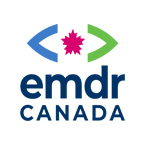
EMDR Canada Code of Conduct
EMDR Canada Member Code of Conduct
Purpose
EMDR Canada is dedicated to advancing the practice and understanding of EMDR therapy. We strive to maintain high standards of professionalism and create a supportive environment for all members and staff participating in our activities. This Code of Conduct applies to all member interactions within EMDR Canada-sponsored events, communications, and activities at all levels.
Members must familiarize themselves with this Code, as ignorance of its contents does not excuse violations. While this Code operates alongside other professional ethical codes, it specifically governs conduct within EMDR Canada contexts. The organization reserves the right to take disciplinary action, including membership termination, for Code violations.
Standards
Members shall conduct themselves in ways that:
- Uphold EMDR Canada’s reputation and integrity
- Support other members’ participation in organizational activities
- Ensure staff wellbeing and safety
Violations
The Board of Directors may take disciplinary action against violations and may update this Code as needed. Board members with conflicts of interest must recuse themselves from related decisions. A conflict exists when a member’s outside interests or responsibilities could influence their judgment on organizational matters.
Types of Misconduct
3.1 Personal Misconduct
Unacceptable personal conduct includes:
- Harassment, threats, or abuse (physical, verbal, or written) toward any member or EMDR Canada employee during organization events or via any organizational communication channels
- Offensive physical contact or verbal behavior
- Direct insults or degrading language about a person or their views
- Discrimination based on race, ethnicity, gender, religion, age, sexual orientation, disability, or other personal characteristics
- Unwanted sexual advances or stalking
- Defamation of any member or staff’s character or professional standing
- Endangering others’ safety at EMDR Canada events
- Inappropriate or indecent behavior at events or in communications
- Bringing weapons or dangerous materials to organization events
- Making inaccurate public statements that could damage EMDR Canada’s reputation or contradict its mission
3.2 Ethical Misconduct
Ethical misconduct violates principles of honesty and fairness, including:
- Failing to disclose conflicts of interest in organizational roles
- Using organizational positions for personal gain
- Speaking on behalf of EMDR Canada without authorization
- Deliberately conspiring against organization leaders
- Making unauthorized agreements binding EMDR Canada
- Loss of professional license that affects membership eligibility
3.3 Financial Misconduct
Financial violations include:
- Mishandling or concealing organizational funds
- Failing to file required financial reports
- Withholding financial documentation from EMDR Canada headquarters
- Destroying financial records
- Misrepresenting oneself as an organizational representative for financial gain
3.4 Disruptive Behavior
Disruptive behavior includes:
- Creating disturbances that interfere with EMDR Canada events or activities
- Displaying hostile, argumentative, or accusatory behavior that impedes the work of the Executive Committee, Board of Directors, committees, or any organizational communications
3.5 Substance Use Policy
Members must:
- Follow local laws and EMDR Canada policies regarding alcohol at events
- Not provide alcohol to anyone under legal drinking age
- Not attend events while obviously impaired
- Obtain prior Board approval for using organizational funds for alcohol purchases
- Not use, possess, or be under the influence of illegal substances at any EMDR Canada events or during organizational communications
Reporting Violations
- Violations should be reported in writing within 10 days to membership@emdrcanada.ca
- A Board review group will examine each case
- Members must respond to allegations within 30 days
- Decisions will be communicated within 30 days of determination
- Appeals must be submitted in writing within one month of decisions
- The Board will review appeals and vote on sanctions within two months
Penalties
- Violations may result in disciplinary action up to membership suspension or expulsion
- Criminal behavior may be reported to authorities
- All violations will be recorded at headquarters
- Warnings:
- Written notice of Code violations
- Remain active for 90 days minimum
- Subject to Board review after 90 days
- Multiple warnings (3+) may lead to increased sanctions
- Warning details remain private between member and organization
- Warning: A warning is a written notice indicating a Code violation and that further violations may lead to additional disciplinary action. Warnings may be issued for:
- Deliberate and serious violations
- Repeated minor violations (such as disrespectful communication with EMDR Canada staff)
- Probation
- Written notification of Code violation
- Minimum 90-day observation period
- Members on probation cannot:
- Receive EMDR Canada scholarships, grants, or awards
- Hold elected or appointed positions at any organizational level
- Board reviews status after probation period
- If terms are met, probation ends but remains on record
- Multiple probations within three years trigger increased sanctions
- Probation details remain confidential between member and EMDR Canada leadership
- Suspension
- Excludes member from all EMDR Canada events and communications
- Minimum 90-day period (or longer as determined by Board)
- No refund of membership fees
- Suspended members cannot:
- Participate in EMDR Canada events or communications
- Receive organizational benefits
- Hold any official positions
- Multiple suspensions within five years trigger increased sanctions
- Suspension details remain confidential
- Membership Termination
- Generally permanent expulsion from EMDR Canada
- No membership fee refunds
- May result in loss of special designations or status
- Limited possibility of readmission if conditions specified in Notice of Expulsion are met
- Readmission requires Board majority vote
- Due to severity, some disclosure may be necessary to:
* Accrediting bodies
* Employers
* Clients
* Media
* EMDR Canada affiliates
* General membership
Effective Date
This Code, approved by the EMDR Canada Board of Directors on October 31, 2024, is immediately incorporated into organizational Policies and Procedures.
